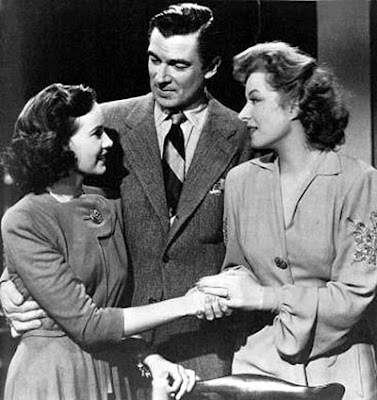The story is based off a fictional English housewife created in 1937 for
newspaper columns named Mrs. Kay Miniver.
Living a very comfortable life in the
outskirts of London with her well-to-do family (you can tell they are well off
because their house has a name: “Starlings”), Miniver’s life is thrown into
turmoil by the start of the Second World War. Her oldest son, Vin, quickly joins
the Royal Air Force and becomes one of the Few; the pilots who held off the
German Blitz during the Battle of Britain at horrific personal expense. Her
husband Clem is called in the middle of the night to participate in the Dunkirk
evacuation, that miraculous operation wherein over 300,000 trapped British and
French soldiers were rescued from the shores of France from the rapidly
advancing German Army. Later that morning, Miniver is threatened by a downed
German pilot who holds her at gunpoint. And finally, Miniver’s entire family
huddles in a shelter as they are very nearly killed by Nazi bombs.
It would be one thing if the film focused solely
on the character of Mrs. Miniver. But Wyler wisely positioned Mrs. Miniver
within a much larger cross-section of British society. We meet characters such
as the Miniver’s live-in housemaid Gladys who tearfully sees her husband off to
the front lines. There’s Lady Beldon, a local aristocrat, and her daughter Carol
who falls in love with Vin and eventually becomes his wife. Lady Beldon is
locked in an epic struggle with kindly stationmaster Mr. Ballard whose only
offense was to dare to enter a rose (which he named the “Mrs. Miniver”) into a
local flower competition which she has perennially won for the last several
years. And finally there is the local vicar (played by Henry Wilcoxon) who
unites the entire community in the final scene with a heart-breakingly powerful
sermon in the ruins of his bombed-out church.Sunday, 10 February 2013
Mrs. Miniver (1942)
Labels:
1940's,
Autumn,
Classic films,
Cosy,
Different Things,
duvet,
Favourite comfort films,
Favourite DVDs,
goodies,
Hollywood,
Romance,
Spring,
Summer,
Treats,
U,
Warm drinks,
Winter
Subscribe to:
Post Comments (Atom)





















No comments:
Post a Comment